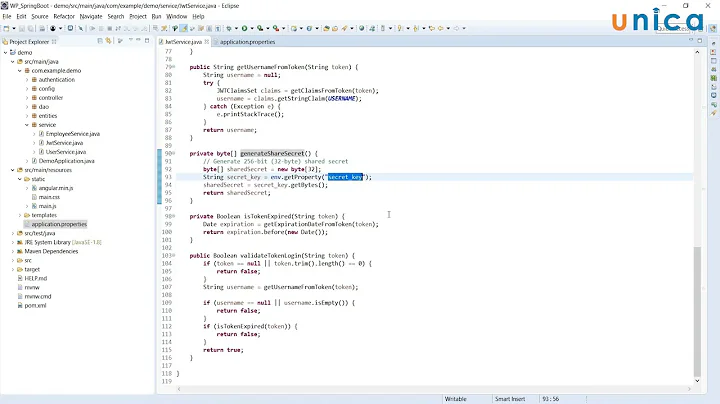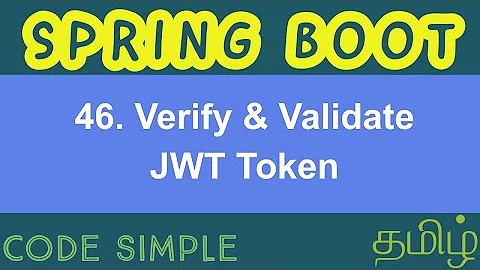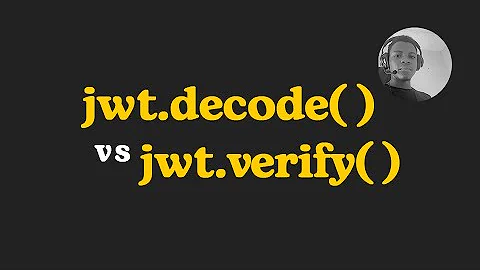When is JWTSecurityTokenHandler.ValidateToken() actually valid?
I check all of the claims values manually. I've been searching for a definitive answer to your same question but the only thing I have seen is that the ValidateToken function will throw an Exception if something is wrong, so I begin by wrapping the call in a try-catch and return false from the catch.
That's just my "first-pass" at validating the token, though. Afterwards I do a little more heavy lifting to check certain values manually. For example, I make sure that the unique_name value in the claims section actually exists as a user in my database, that the user has not been deactivated, and other proprietary system stuff like that.
public static bool VerifyToken(string token)
{
var validationParameters = new TokenValidationParameters()
{
IssuerSigningToken = new BinarySecretSecurityToken(_key),
ValidAudience = _audience,
ValidIssuer = _issuer,
ValidateLifetime = true,
ValidateAudience = true,
ValidateIssuer = true,
ValidateIssuerSigningKey = true
};
var tokenHandler = new JwtSecurityTokenHandler();
SecurityToken validatedToken = null;
try
{
tokenHandler.ValidateToken(token, validationParameters, out validatedToken);
}
catch(SecurityTokenException)
{
return false;
}
catch(Exception e)
{
log(e.ToString()); //something else happened
throw;
}
//... manual validations return false if anything untoward is discovered
return validatedToken != null;
}
The last line, return validatedToken != null, is purely superstition on my part. I've never seen the validatedToken be null.
Related videos on Youtube
Adam
Updated on July 09, 2022Comments
-
Adam almost 2 years
I am attempting to create a token validation method that returns true if a JWT token is valid based on the signature. I don't think I really need to validate everything in the token but what actually signifies a token is valid after calling ValidateToken()? The existence of a principle? The out referenced token contains certain values? Not sure when to return true from this method.
public bool ValidateToken(string tokenString) { var validationParameters = new TokenValidationParameters() { ValidIssuer = "My Company", ValidAudience = ApplicationId, IssuerSigningKey = JsonWebTokenSecretKey }; SecurityToken token = new JwtSecurityToken(); var tokenHandler = new JwtSecurityTokenHandler(); var principal = tokenHandler.ValidateToken(tokenString, validationParameters, out token); return principal != null; } -
Judah Gabriel Himango over 7 yearsLooking at the source code, this indeed seems to be the case: ValidateToken will throw on invalid token. github.com/AzureAD/… This is bad design; we shouldn't use exceptions for control flow. But, that's the state of this library today.
-
tkd_aj about 7 yearsI had to do something similar in my application to test for token validity, but instead of catching any exception and saying the token is invalid, I would suggest doing something like this instead:
catch(SecurityTokenException ex) { return false; } catch(Exception){ log("something else happened"); throw; }This way it will only return false if the validate function is actually what threw the error. If something else breaks it won't tell you that your token is invalid. -
 Eddie Chaplin about 7 yearstkd_aj: Thanks for the great suggestion. We should always be as explicit as possible with exceptions. I've updated my answer to include your suggestion.
Eddie Chaplin about 7 yearstkd_aj: Thanks for the great suggestion. We should always be as explicit as possible with exceptions. I've updated my answer to include your suggestion. -
 Jeyhun Rahimov almost 2 yearsBut, how can you get claims? for example, username.
Jeyhun Rahimov almost 2 yearsBut, how can you get claims? for example, username.


![gRPC C# Tutorial [Part 4] - gRPC JWT Token .Net Core - DotNet gRPC Authorization](https://i.ytimg.com/vi/4-GTX6vW2Z4/hq720.jpg?sqp=-oaymwEcCNAFEJQDSFXyq4qpAw4IARUAAIhCGAFwAcABBg==&rs=AOn4CLAD2ptXGxNgU4u101S32ORFRQxLqw)






